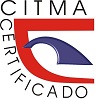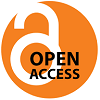Cuentos apoyados en pictogramas para las clases integradoras de educandos con sordoceguera
Stories supported by pictograms for inclusive classes of students with deafblindness
Keywords:
stories, pictograms, inclusive class, deafblindnessAbstract
The education of students with deafblindness is based on the daily work carried out by Special School William Soler Ledea in its comprehensive care for children, adolescents and young people with this disability. In this center it is conceived that the psycho-pedagogical work mustbe carried out by should be made by stimulating areas of development, within which is found, the one related to Cognition, communication and language. This work assisting to this premise, it presents a proposal of stories supported in pictograms for the work in the integrative classes of students with deafblindness of this school like solution road to one of the problems that is showing in the educational practice. The proposal that it is presented it contains 10 stories that facilitate to reach in these, a development of the vocabulary, the language and the acquisition of knowledge on the means that surrounds them and the place where you/they are unwrapped, as well as to acquire habits and abilities keeping in mind their potentialities and necessities. The same one puts day by day into practice for the educational ones in the process of teaching learning and it demonstrates that it constitutes a resource and didactic support for them in their work.
Downloads
References
Chkout, T. (2003). Modelo para la organización de la atención educativa de los niños, adolescentes y jóvenes sordociegos. Tesis de maestría. Ciudad de La Habana, Cuba: ISPEJV
Cuevas Estenoz L.M. (2012). La evaluación funcional y psicopedagógica de escolares con sordoceguera. CELAEE, La Habana, Cuba.
Ferioli, G. (1999). Introducción a la Sordoceguera. Atención a niños sordociegos. Programa Hilton/ Perkins. Centro de Rehabilitación de Ciegos y Débiles Visuales. Habana. Cuba
González Soca, A. M. . (2019). El proceso educativo desarrollador, eje esencial de la calidad educacional cubana actual: The educational development process, essential axis of the current cuban educational quality. Horizonte Pedagógico, 8(3), 56–69. Recuperado a partir de http://www.horizontepedagogico.rimed.cu/index.php/hop/article/view/118
Pérez Molina, D., Pérez Molina A. I,. Sánchez Serra, R. (2013). El cuento como recurso educativo. Revista 3Ciencias.
Published
How to Cite
Issue
Section
License
Copyright (c) 2023 Tatiana Luis López

This work is licensed under a Creative Commons Attribution 4.0 International License.
Horizonte Pedagógico es una revista Open Access, lo que quiere decir que todo su contenido es accesible libremente sin cargo para el lector o su institución. Los usuarios están autorizados a leer, descargar, copiar, distribuir, imprimir, buscar o enlazar a los textos completos de los artículos de esta revista sin permiso previo del editor o del autor, de acuerdo con la definición BOAI de open access. Los autores que publican en esta revista están de acuerdo con los siguientes términos: Los autores conservarán los “Derechos de autor” y garantizan a la revista el derecho de ser la primera publicación del trabajo. La revista se encuentra protegida bajo una licencia internacional de Creative Commons Attribution License Atribución 4.0 Internacional (CC BY NC 4.0), que permite a otros compartir (copiar y redistribuir el material en cualquier medio o formato) y adaptar (remezclar, transformar y construir a partir del material), para cualquier propósito, incluso comercialmente. Bajo las siguientes condiciones: atribución (usted debe dar crédito de manera adecuada, brindar un enlace a la licencia, e indicar si se han realizado cambios y no comercial — Usted no puede hacer uso del material con propósitos comerciales. Puede hacerlo en cualquier forma razonable, pero no de forma tal que sugiera que usted o su uso tienen el apoyo de la revista o el autor de la publicación.






















